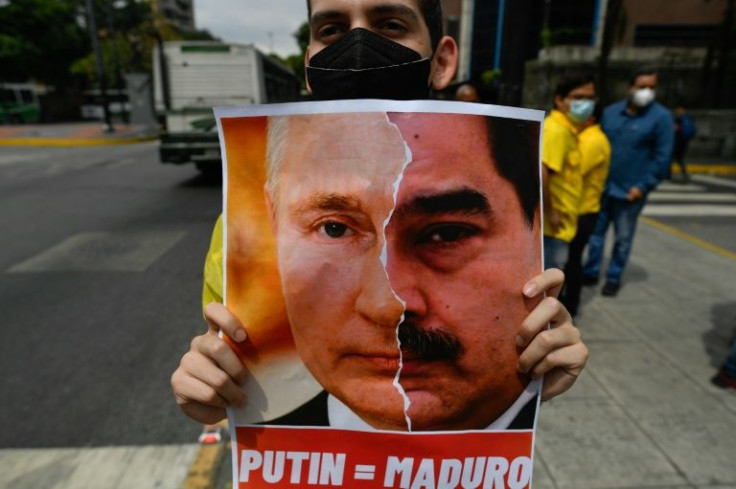US Reaches Out To Maduro In Energy Talks With Venezuela
A US delegation met with Venezuelan government officials in Caracus at the weekend for talks that included a discussion of energy supplies, the White House said Monday as Washington looks for ways to reduce its imports of Russian oil.
Venezuela's opposition also said it had met with the high-level US delegation, whose trip to Caracas came as Washington seeks to isolate Russia over its invasion of Ukraine.
President Nicolas Maduro, with whose regime the United States broke off relations in 2019, has been among the few international figures to assure Russian President Vladimir Putin of his "strong support" in the wake of the invasion.
"As it relates to Venezuela, the purpose of the trip that was taken by administration officials was to discuss a range of issues including certainly energy, energy security," White House Press Secretary Jen Psaki told reporters.
Maduro confirmed the meeting in a televised appearance late Monday, describing it as "respectful, cordial and diplomatic" without going into detail about the issues addressed.
"We did it in the presidential office," he said. "We had almost two hours talking."
"It seemed very important to me to be able, face to face, to discuss topics of maximum interest to Venezuela," he said.
The United States has imposed a battery of sanctions on Caracas in a bid to force Maduro from power, with one 2019 measure preventing Venezuela from trading its crude oil -- which accounted for 96 percent of the country's revenues -- on the US market.
According to The New York Times, the visit by senior State Department and White House officials was linked to Washington's alleged interest in replacing part of the oil it currently buys from Russia with the oil it stopped buying from Venezuela.
The White House has indicated it is examining how to reduce Russian oil imports without harming US consumers and while maintaining global supply -- although Psaki said Monday no decision had been made on a possible ban on Russian oil.
Psaki said the delegation also raised the "health and welfare" of a number of Americans detained in the country -- who include six oil executives jailed in 2017 -- but stressed that energy talks and the detainees' fate were "separate paths and conversations."

Since breaking off diplomatic relations with Caracas, Washington had refused to deal with the Maduro government, instead treating opposition leader Juan Guaido as the South American country's legitimate president.
Guaido's office said the opposition held a "sustained meeting" with the US delegation.
The United States is one of almost 60 countries to have recognized Guaido as Venezuela's acting president, having rejected Maduro's 2018 reelection in a poll widely viewed as fraudulent.
Maduro also announced Monday the resumption of talks with the opposition that stalled five months ago.
Washington signaled last month it would be willing to review its sanctions policy toward Venezuela if talks between Maduro's government and the opposition moved forward.
The announcement came after Maduro's request for a peace negotiation following the Russian invasion of Ukraine, in order to avoid a "third world war."
"We are ringing the warning bell... to the whole world," said Maduro, who called for the "humanitarian corridors" in Ukraine to be respected.
"We are gravely concerned about the possibility of a war in Europe and an extension... of this armed confrontation, it seems to fester, a public media campaign of hatred and a set of economic measures aimed at aggravating the conditions and extending the scenario of war," added Maduro.
Salvadoran President Nayib Bukele, who has a strained relationship with the United States, was skeptical of Washington's motives.
"The US government decides who is the bad guy and who is the good guy and also when the bad guy becomes good and the good guy becomes bad," he wrote on Twitter.
© Copyright AFP 2024. All rights reserved.





















